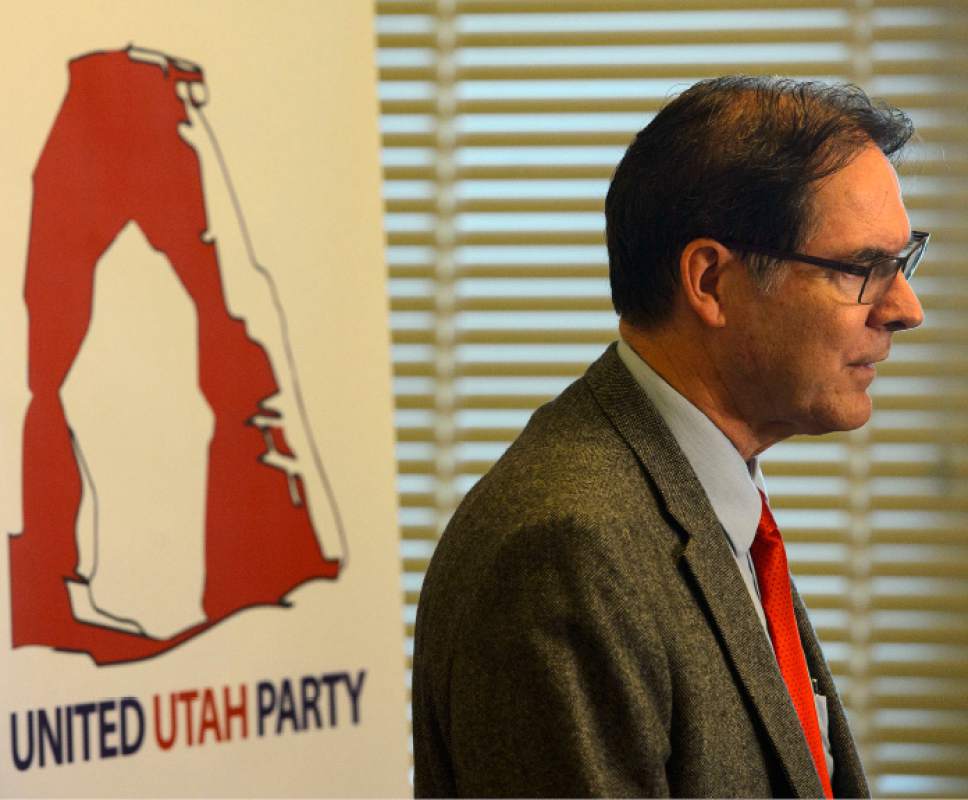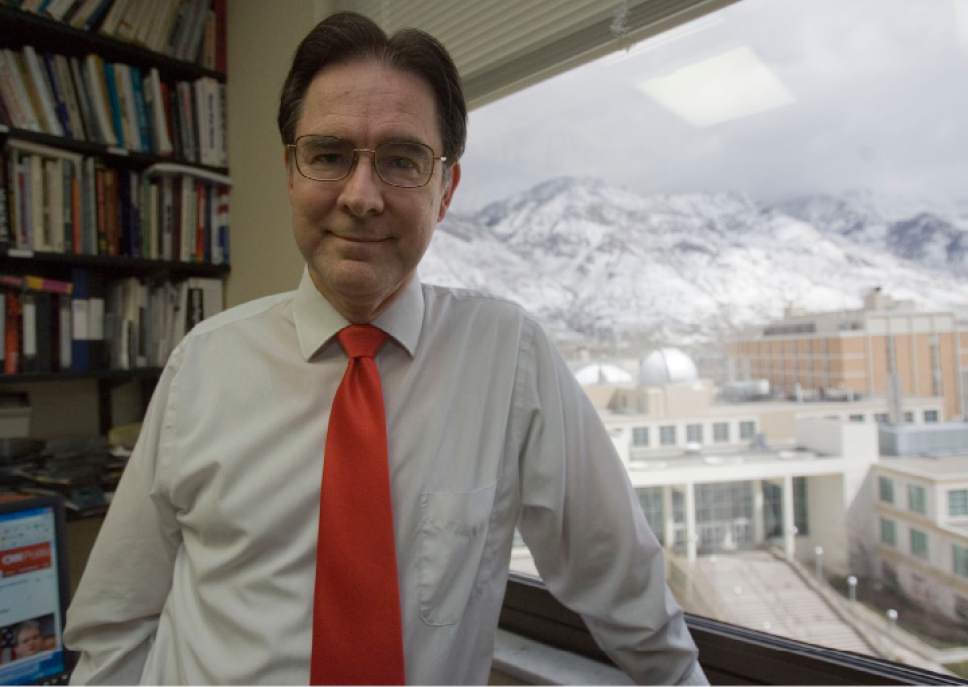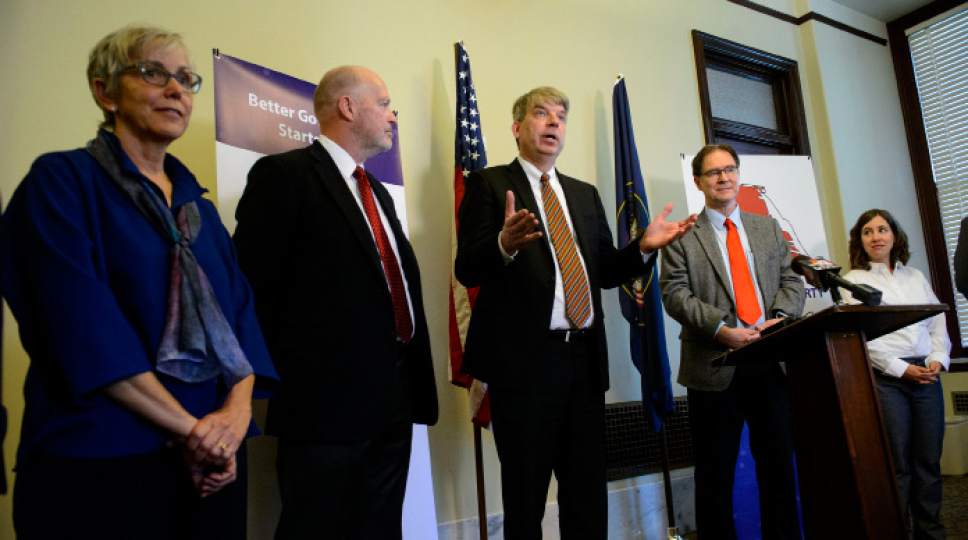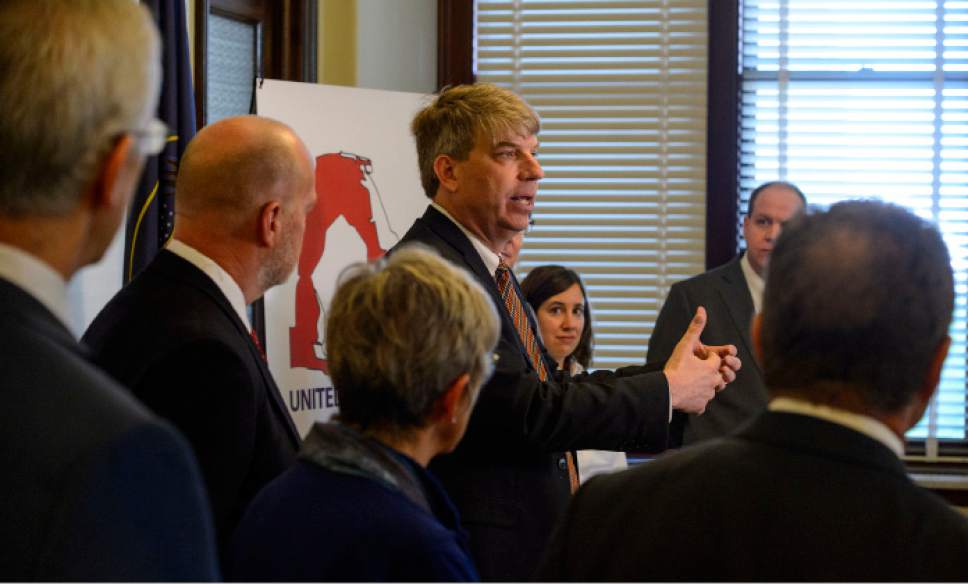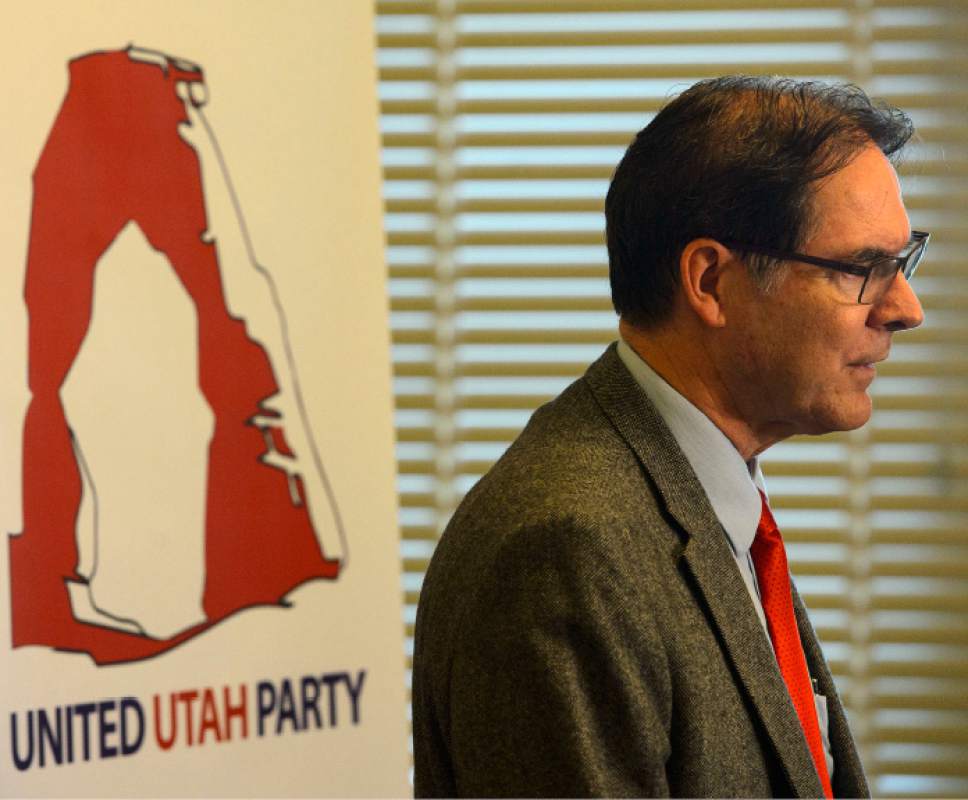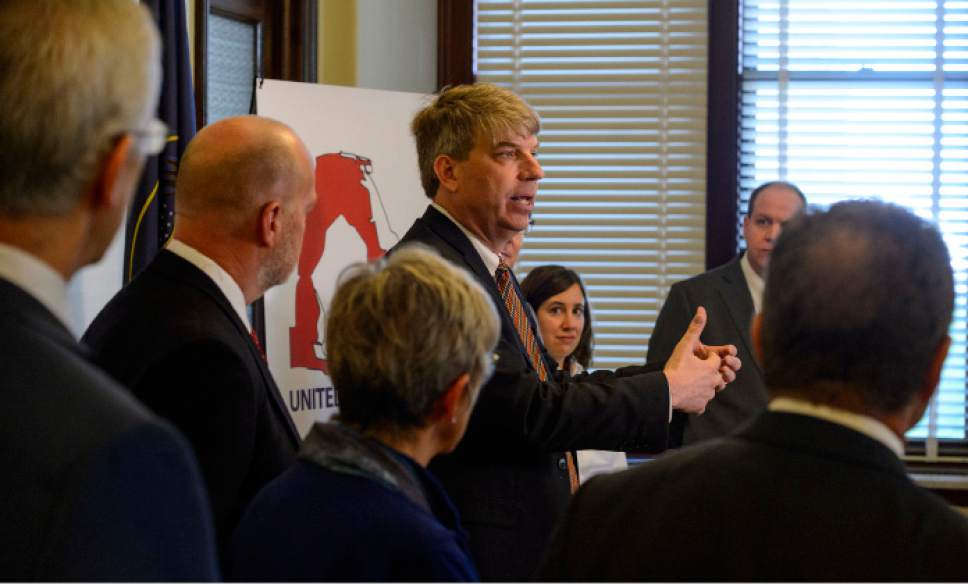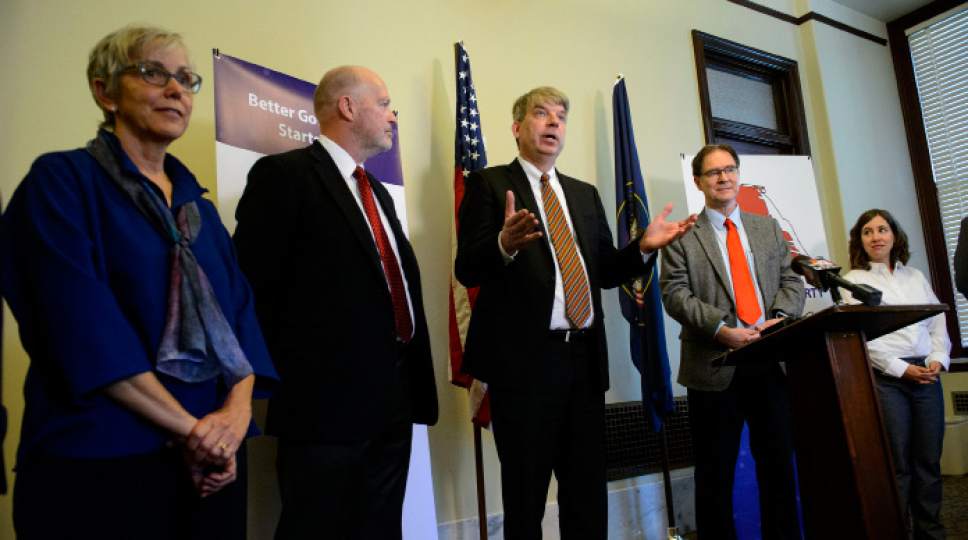This is an archived article that was published on sltrib.com in 2017, and information in the article may be outdated. It is provided only for personal research purposes and may not be reprinted.
Some centrist Utah Republicans and Democrats — tired of dominance in their parties by the far right or left — formed Monday the new United Utah Party.
Former Utah County Democratic Chairman Richard Davis, a Brigham Young University political science professor, is chairman of the new organization. Its executive director is Jim Bennett, the son and campaign manager of the late three-term Republican U.S. Sen. Bob Bennett.
"We will be a party of the people who are frustrated with the extremism of the two major parties," Davis said at a state Capitol news conference. "We believe that voters want some kind of alternative."
He said the party hopes to gather the 2,000 signatures needed to qualify for the ballot by Friday and aims to participate in the special election to replace U.S. Rep. Jason Chaffetz, R-Utah.
"If we qualify for the ballot," he said, "we will have a candidate."
Bennett said the new party has been in the works for months, arising out of long-simmering dissatisfaction with the current parties. He talked about how his own father was branded a "Republican in name only" by the GOP far right and was disgusted by the nomination of Donald Trump.
Bennett told how his father asked on his death bed to visit Muslims in his hospital and said, "I want to go up to every single one of them and apologize on behalf of the Republican Party for Donald Trump."
Bennett added, "As we look at the disaffection of the Republican Party in the state of Utah with the rise of Donald Trump, we see an opportunity for not only disaffected Republicans but also disaffected Democrats to find a home."
He said Utah Democrats "have shifted further left, even as they have become less competitive," and Republicans "don't have anyone to challenge them, so they have shifted further to the right."
Utah Republicans have taken a few steps toward center in recent weeks, dumping conservative chairmen of both the Utah Republican Party and the Utah County Republican Party for more centrist leaders.
Bennett said that likely was a temporary reaction to many Republicans being upset at the party pursuing expensive lawsuits to challenge SB54, a new law that allows candidates to qualify for the ballot not only through the traditional caucus-convention system but also by gathering petition signatures.
Bennett said Republicans frustrated "at tilting at windmills at SB54 allowed for a few concessions at this last state convention, but if there is no reasonable alternative, if there is no real competition, the Republican Party will go back to default position on the far right."
Bennett's father was dumped in his bid for a fourth Senate term by far-right GOP delegates in 2010, even though he had high popularity ratings among all voters and was considered one of the nation's most conservative senators. His defeat helped lead to SB54 and moves for an open primary.
Bennett said the new party may also be helped because even though Trump carried Utah last year, a majority of its voters cast ballots for someone else — either Democrat Hillary Clinton or independent Evan McMullin.
Also, 39 percent of Utah's 1.5 million registered voters are currently unaffiliated.
Another 46.6 percent currently are Republicans; 11.4 percent are Democrats; 1.6 percent belong to the Independent American Party; 0.9 percent are Libertarians; and 0.4 percent belong to the Constitution Party, according to the lieutenant governor's office.
Utah State University political science professor Michael Lyons says history is against third parties doing well in the United States or Utah — even though current politics may make a centrist party seem attractive here.
"Public opinion surveys certainly indicate that very substantial parts of the population are dissatisfied with the alternatives that they have today," shown in party by the high number of unaffiliated voters in Utah, Lyons said.
"You'd think that the pieces are in place here for a centrist third party to be successful," he said. "But a number of constitutional and election rules work in favor of the two-party system."
Most significantly, the single-member district system in U.S. politics requires new parties to win at least a third of the vote to achieve a plurality to win anything — which is tough. So members often become frustrated and disband, he said.
In contrast, proportional representation systems in Europe award new parties some offices with as little as 5 percent of the vote. With that, "A third party will gain some representation, some legitimacy, and it has a foothold on which to expand," Lyons said.
So few third parties last long in Utah or the U.S., Lyons said. At best, they may be spoilers — such as when the small Green Party gained enough votes to help defeat Al Gore in 2000 and help elect George W. Bush. "But that doesn't get you very far."
A few former officeholders or major party candidates are among the founding members of the new United Utah party.
They include Vaughn Cook, a Democratic candidate for governor last year, and his running mate, Jan Garbett; former GOP legislator Bryson Garbett, a homebuilder and the husband of Jan Garbett; and Jonathan Swinton, Democratic candidate for U.S. Senate last year.
Cook said, "Republicans have a supermajority and call all of the shots. Democrats have essentially become irrelevant," and he believes the new party "will appeal to most Utahns" and "reinvigorate competition in this state, where the people actually elect their officials instead of a few delegates in the nominating process."
Davis said the party will have an open primary in which members of any party may participate, similar to Utah Democrats. The GOP, on the other hand, allows only registered Republicans to vote in its primary.
He said the platform of the party will support term limits, stricter campaign-finance laws, an independent redistricting commission to help prevent gerrymandering of boundaries, more nonpartisan elections, especially for school boards, and a significant boost in school funding.
It also calls for enforcement of immigration laws, but with compassion. On abortion, it said, the procedure should be legal in some cases such as rape, incest or serious danger of the health or life of the mother.
The party will have no ties to any national party at this point. "We are a state party," Davis said.
More information about the new party is available online at unitedutah.org.


